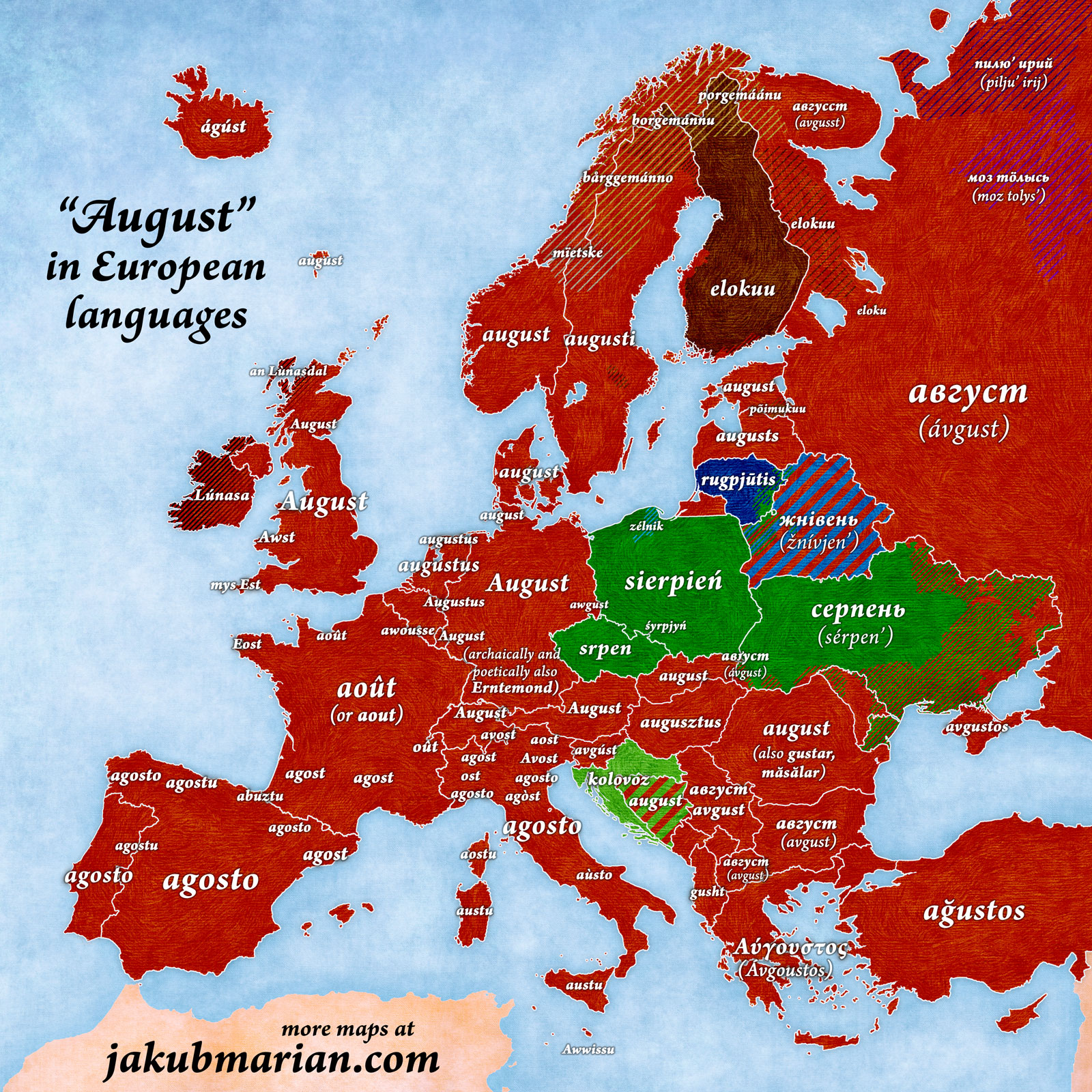The English name “August” comes from Latin augustus, named in honour of Augustus, the first Roman emperor and great-nephew and adoptive son of Julius Caesar. Augustus himself was born Gaius Octavius and assumed his adoptive father’s name (Gaius Julius Caesar) upon adoption. When he became the first Roman emperor, the Roman senate gave him the title “Augustus”, literally “Majestic”, which he adopted as his name to avoid confusion with Julius Caesar.
Names shown on a red background on the map below are all derived from the Latin name of the month, augustus:

Other etymologies are as follows: Polish sierpień, Ukrainian sérpen’, Czech srpen, and Silesian śyrpjyń are derived from a Slavic word for a sickle, referring to harvesting. Belarusian žnívjen’ is derived from žnívo, meaning “harvest” (noun).
Croatian kolovoz is derived from kolo (“wheel”) + voziti (“to drive, to transport”), referring to grain being transported. Kashubian zélnik is derived from a proto-Slavic root referring to green plants. Lithuanian rugpjūtis means “rye harvest”.
Finnish elokuu means “crop month”. Võro põimukuu is “weaving month” (referring to weaving of hay). Northern Sami borgemánnu means “moult month”. Nenets pilju’ irij means “botfly month”.
Irish Lúnasa and Scottish Gaelic Lùnasdal are named after Lugh, an important god in Irish mythology. Their similarity to the word “lune” is purely coincidental.
 Tip: Are you a non-native English speaker? I have just finished creating a
Tip: Are you a non-native English speaker? I have just finished creating a  Web App
Web App
